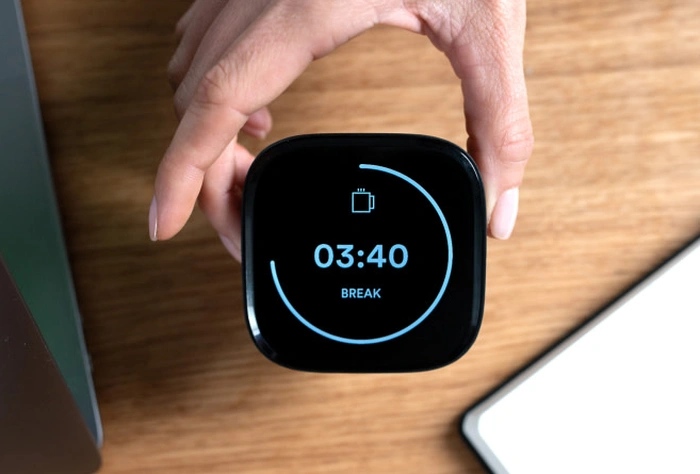10 Tiny Habits That Add Up to Big Change

We often believe that significant life changes require dramatic overhauls—completely restructuring our daily routines, making major sacrifices, or summoning superhuman willpower. But what if the secret to transformation lies not in grand gestures, but in the smallest actions we can barely notice?
The power of tiny habits lies in their sustainability. When we start small, we remove the barriers that typically derail our best intentions: overwhelm, perfectionism, and the all-or-nothing mindset that leads to inevitable burnout. Instead, we create momentum through consistency, building neural pathways that make positive behaviors automatic.
The Science Behind Small Changes
Research in behavioral psychology consistently shows that the most effective way to create lasting change is through what Stanford researcher BJ Fogg calls "tiny habits"—behaviors so small they require minimal motivation and can be performed even on your worst days.
When we repeat tiny actions consistently, our brains literally rewire themselves through neuroplasticity. Each repetition strengthens neural pathways, making the behavior increasingly automatic. This is why someone who starts by doing just one push-up each morning might find themselves naturally progressing to a full workout routine—not through force, but through the gentle momentum of consistency.
10 Transformative Tiny Habits
1. The Two-Minute Morning Pages
Instead of committing to lengthy journaling sessions, spend just two minutes each morning writing whatever comes to mind. This practice, inspired by Julia Cameron's "Morning Pages," clears mental clutter and enhances creativity. Start with three sentences about how you're feeling or what you're thinking about.
2. The One-Breath Reset
Before opening any app on your phone, take one deep breath. This tiny pause creates mindfulness in digital consumption and helps break the automaticity of endless scrolling. Over time, this simple practice can dramatically improve your relationship with technology.
3. The Single Gratitude Note
Each evening, write down one thing you're grateful for on a sticky note and place it somewhere you'll see it the next morning. This builds appreciation, improves mood, and creates positive visual reminders throughout your space.
4. The 10-Second Tidy
When leaving any room, pick up one item and put it in its proper place. This prevents clutter accumulation and maintains a more organized living space without dedicating specific time to cleaning.
5. The Learning Minute
Spend one minute learning something new each day—read a single Wikipedia page, watch a brief educational video, or listen to a podcast snippet. This keeps your mind engaged and curious while building the habit of lifelong learning.
6. The Connection Text
Send one thoughtful message to a friend or family member each week. Not generic "how are you?" texts, but specific appreciation, sharing a memory, or checking in about something important to them. Strong relationships are built through consistent small gestures.
7. The Micro-Movement
Every time you go to the bathroom, do five jumping jacks, stretch your arms overhead, or hold a 10-second wall sit. These micro-workouts add up to significant movement throughout the day and combat the effects of sedentary lifestyles.
8. The Mindful First Bite
Take the first bite of each meal slowly and mindfully, paying attention to taste, texture, and aroma. This simple practice improves digestion, enhances eating satisfaction, and naturally promotes healthier eating habits.
9. The Evening Wind-Down
Set a phone alarm for 30 minutes before your desired bedtime and use it as a cue to dim the lights. This tiny environmental change signals your brain to begin producing melatonin, improving sleep quality without requiring major schedule changes.
10. The Daily Appreciation
When you brush your teeth each morning, think of one person you appreciate and why. This practice starts your day with positive thoughts about others and strengthens your social connections through increased empathy and gratitude.
Implementation Strategies
The key to success with tiny habits is strategic implementation. Here's how to make them stick:
Anchor to Existing Habits
Attach your new tiny habit to something you already do consistently. "After I pour my morning coffee, I will write one sentence in my journal." This leverages existing neural pathways and makes remembering automatic.
Start Ridiculously Small
If one minute feels like too much, start with 30 seconds. If five jumping jacks seem daunting, do one. The goal is consistency, not intensity. You can always do more once the habit is established.
Celebrate Immediately
After completing your tiny habit, take a moment to feel good about it. Say "Yes!" smile, or do a little fist pump. This positive reinforcement helps your brain associate the behavior with reward, making repetition more likely.
Track Simply
Use a simple calendar or habit tracker to mark each day you complete your tiny habit. Visual progress is motivating and helps identify patterns or obstacles.
The Compound Effect
The magic of tiny habits lies not in their immediate impact, but in their compound effect over time. Just as financial investments grow through compound interest, small daily actions accumulate into significant life changes.
Consider someone who reads just two pages of a book each day. This feels insignificant—certainly not enough to call yourself a "reader." But over a year, those two pages become 730 pages, or about 2-3 books. Over a decade, it's 20-30 books. This person has quietly become well-read through an action so small it's almost embarrassing to track.
"Success is the product of daily habits—not once-in-a-lifetime transformations." — James Clear
Overcoming Common Obstacles
The Perfection Trap
Many people abandon tiny habits the first time they miss a day, believing they've "failed." Remember: the goal is progress, not perfection. Missing one day doesn't erase previous progress. Simply restart the next day without judgment.
The "Too Small to Matter" Myth
Our culture celebrates dramatic transformations, making tiny changes feel insignificant. Resist this mindset. Every major change in history began with small actions that seemed inconsequential at the time.
Impatience with Results
Tiny habits often have a delayed payoff, which can feel discouraging. Trust the process. Focus on the system (consistency) rather than the outcome (immediate results). The changes will compound over time.
Your Next Small Step
Choose one tiny habit from this list—the one that resonates most with you or feels easiest to implement. Commit to it for just one week. Don't add more habits until this one feels automatic.
Remember, the goal isn't to transform your entire life overnight. It's to prove to yourself that change is possible, one tiny action at a time. As these small habits take root, you'll find yourself naturally wanting to do more, building momentum toward the life you envision.
The path to meaningful change doesn't require superhuman effort—it requires super-human consistency in small things. And that's something every one of us can achieve, starting today.

